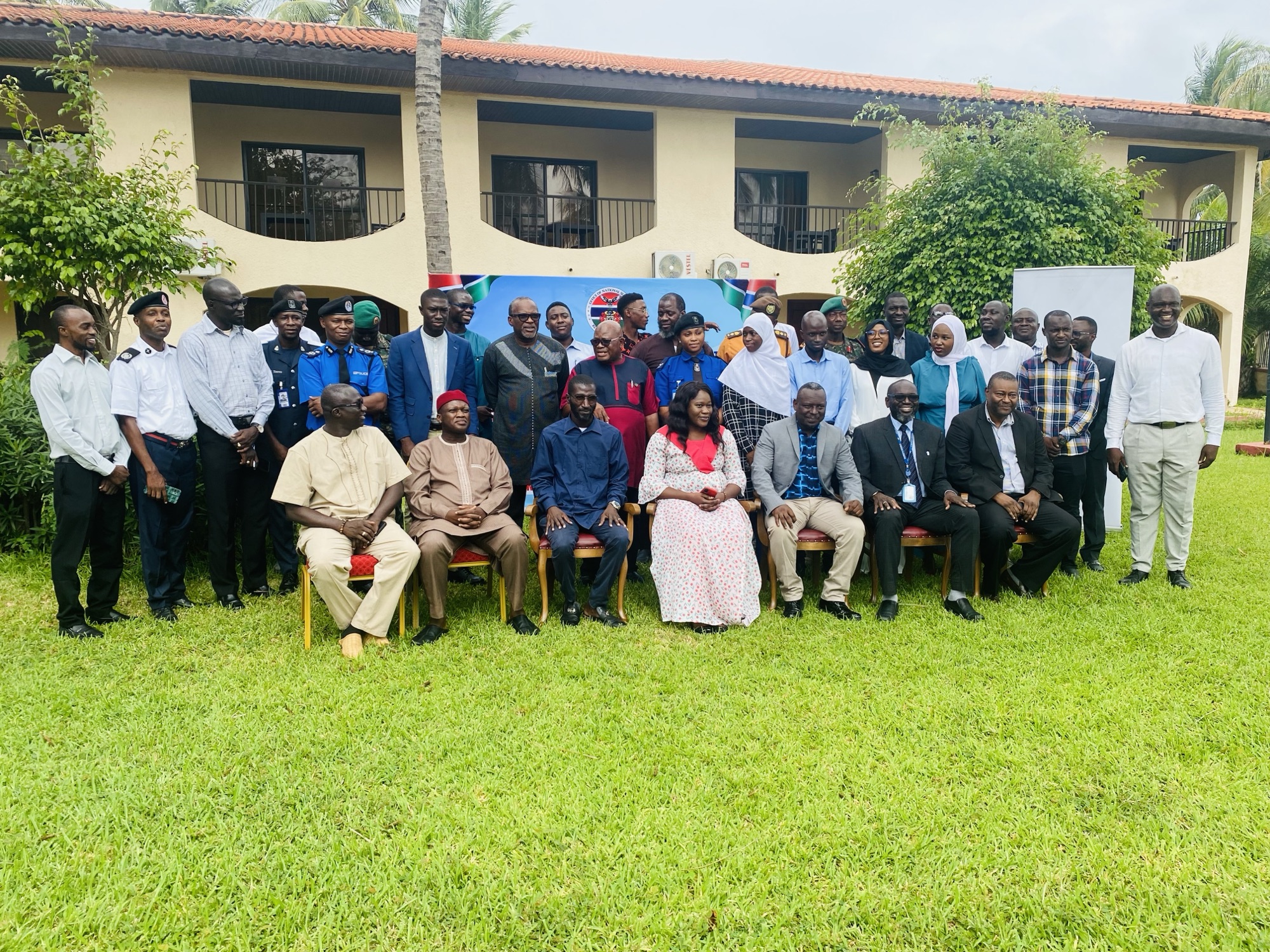By: Haruna Kuyateh
Mustapha Njie, board chairman Agency for Village Support AVISU has commended Catholic Relief Services (CRS) for their support and commitment to rice value chain development and empowerment of women farmers.
He said women are the principal producers and also commended the youths for addressing irregular migration, noting that the intervention by the agency contribute to address poverty reduction.
He said the agency focused on development programmes that promote sustainable livelihood among the vulnerable and marginalized.
AVISU board chair hailed CRS for the partnership in July 2008 to implement rice project that supported over1,600 smallholder farmers in Lower and Upper Saloum districts by providing them with early maturing rice seeds and fertilizers in promoting rice value chain as well as building the capacity of staff and beneficiaries.
Central River Region Deputy Governor Omar Sey, noted the important government attaches to promoting the welfare of peoples through working with NGOs and institutions.
He said that building the capacity on Saving and Internal Lending Communities SILC is a project dubbed Empowering Women through Agro – Enterprises Development (EWAD).
However said Empowering women through Agro Enterprise development would contribute to uplift the lives and livelihood. He challenges PSP to be vigilant and remain good will ambassador of AVISU and the communities to bring about positive change on the lives of poor farmers and youths.
Musa Saho Director of AVISU said that Saving and Internal Lending Communities SILC program aims to empower communities to mobilize and promoting the culture of saving using the traditional method of groups, noting that ASUSU scheme is quite different and it entice quiet numbers of women.
“It helps members build lump sums that become available at a pre-determined time, and allows them easy access to small, flexible loans or emergency grants. The benefits, SILC groups strengthen the social bonds between members and contribute powerfully to Integral Human Development,” he said.
The intervention of CRS on the piloting of project, has contributed to changing the lives of women and youths. As part of scaling up Saving and Internal Lending Communities recruited and trained community based Private Service Providers to help in the transfer of skills and knowledge to ensure proper management of fund to help improve socioeconomic wellbeing of members.
Members of SILC groups ranges from (15–25) are user-owned, self-managed savings and credit groups that are accessible, transparent and flexible.
The SILC model offers poor households safe and frequent opportunities to save in the convenience of their own community. SILC groups thrive in rural and remote settings beyond the reach of formal financial institutions. Even in areas where formal financial services are available, SILC groups remain popular due to their flexibility and their unique combination of services.
Babucarr Bojang Program Manager on Agriculture and Emergency Response at CRS, said Saving and Internal Lending Communities shape around traditional savings practises and benefits from the accumulated experience of saving group practitioners.
The objective of SILC is to enhance a more secured and reliable Saving and Lending of money among local groups/ communities by strengthening sustainable access to easy micro finance services with less interest rate.
The saving scheme will support women and youths to be self-employ and contribute towards prevention of irregular migration and reduction of protection risks associated in the region.
He disclosed that a total of 98 groups were registered and has accumulated D2million dalasi of which beneficiaries themselves by paving the way lend one another to venture in to meaningful economic activities for poverty reduction.
He added that the process is transparent and accountable as members respect their constitution and by law and help members to factor reinvestment in to generating income and boost food production.
The one-year period of training on SILC for qualified PSP operating on their own, CRS developed the Private Service Provider (PSP) model, which prepares agents to become independent service providers operating on a market-led basis.
Commenting on the services of Private Service Providers PSP, Bojang called on development partners to hire the services of PSP in the quest to promote grassroots micro finance activities.
According to him, SILC is self-reliance and the monies help members to support one another through social fund, with the ultimate objective of building the concept of saving.
He also said that programs is be implemented by local organizations without any background in financial service provision, and their role includes recruiting, training and overseeing the work of community-based agents who train the groups.
He described as a good fit for CRS’ traditional implementing partners, often complementing and reinforcing their activities in agriculture, health and other sectors.
Chief Ali Gaye Touray of Lower Saloum and Chairman Saihou Jawara of Kuntaur Area Council all commended the effort of AVISU and CRS in improving lives and livelihood of communities in CRR.
The duos assured of their unflinching support to the implementation of the agency program and activities to address food security and poverty reduction.
Ndey Jobe Private Service Provider noted that the lending scheme by members will contribute to protect women and youths from exploitation by micro finance agency. She said the project has help members in decision making to decide on how the fund will be use.





